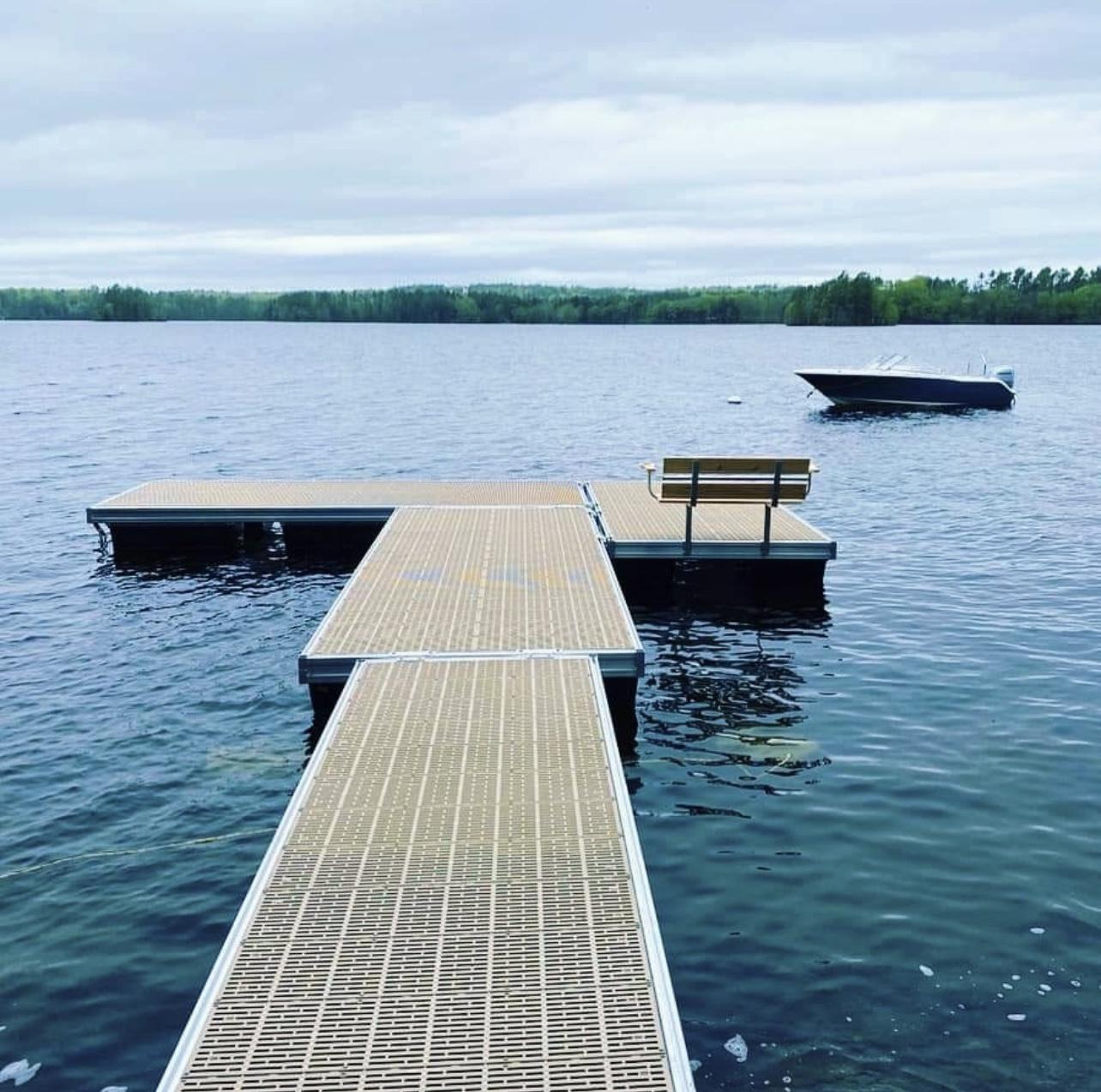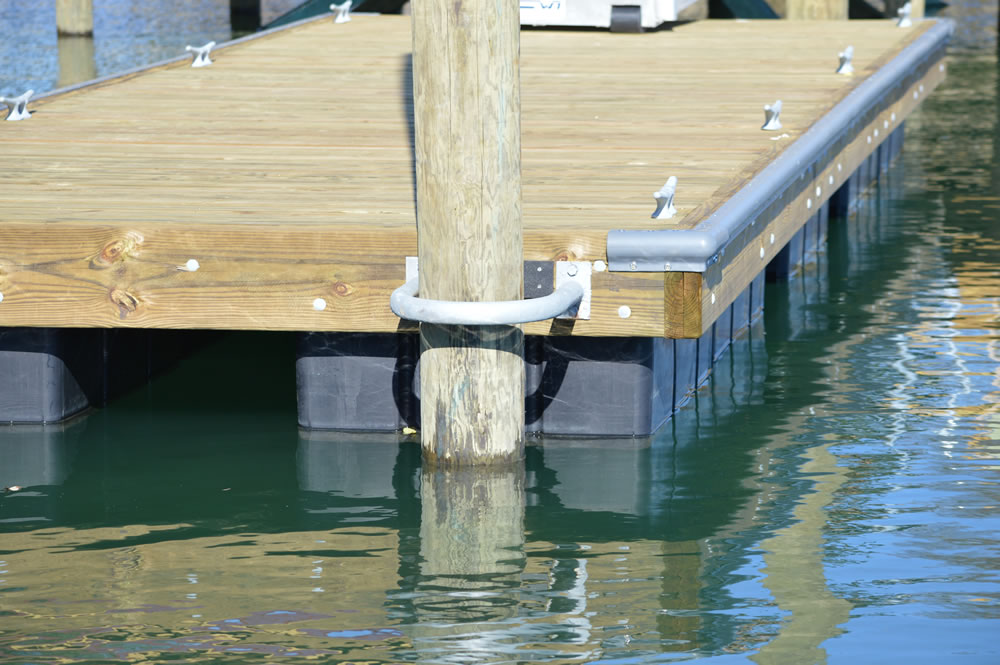Floating Docks: The Perfect Choice for Versatile Water Gain Access To
Floating docks present an engaging solution for a variety of water gain access to requires, supplying flexibility that transcends conventional mooring alternatives. Their ability to adapt to ever-changing water levels while making sure security and safety makes them particularly helpful for both commercial and recreational applications. Additionally, the modular nature of floating docks helps with personalization, catering to certain demands. Nevertheless, the nuances of installation and maintenance, along with the series of applications, call for a closer assessment to completely appreciate their prospective advantages and effects for river gain access to methods.
Benefits of Floating Docks
Floating docks deal various advantages that boost water accessibility for various applications. Their capacity to fluctuate with changing water degrees makes them particularly useful in atmospheres with varying tides or seasonal variants. This versatility ensures that vessels can quickly anchor without issue for the water's depth, providing a trusted system for leisure, commercial, and commercial uses.
Furthermore, floating docks are typically created from resilient products that withstand rust, making them ideal for long-term usage in marine atmospheres. Their installation is generally less invasive than standard set docks, reducing the environmental impact and assisting in quicker release (floating dock builder). This versatility enables less complicated moving or reconfiguration according to user needs or environmental changes
Safety is another key benefit; floating docks can provide secure access for individuals getting off or boarding from watercrafts and minimize the risk of accidents connected with unstable surface areas. Furthermore, they can be made to suit a selection of accessories, such as cleats and fenders, enhancing functionality. Generally, floating docks stand for an efficient solution for boosting water gain access to across varied markets while promoting safety and ecological sustainability.

Kinds Of Floating Docks
Numerous sorts of floating docks accommodate different needs and settings, each designed with certain attributes to optimize performance. One of the most common types consist of modular docks, which contain interlocking sections that enable for very easy customization and growth. These docks are ideal for leisure usage, as they can be customized to fit numerous boat sizes and water problems.
An additional preferred option is the stationary floating dock, which stays secured in position but floats with altering water degrees. floating docks. This type is especially fit for locations with marginal tidal fluctuations, supplying steady accessibility for fishing or swimming. Furthermore, there are drive-on docks, which feature a sloped design that enables boats to quickly drive on and off, making them appropriate for individual boat and smaller sized vessels
For business applications, sturdy floating docks are available, constructed from reinforced materials to stand up to substantial loads and severe marine atmospheres. Finally, green floating docks make use of lasting products and styles to lessen ecological influence, usually integrating features like plants to sustain local wildlife. Comprehending the different kinds of floating docks ensures that customers can choose the most ideal option for their specific needs.
Installment Process Overview
An effective installation of floating docks needs careful preparation and attention to information to guarantee optimum performance and safety and security. The preliminary step includes evaluating the website conditions, consisting of water depth, present, and potential challenges. This assessment notifies the option of the proper dock products and style customized to the certain environment.
Following, acquiring necessary authorizations is vital, as many jurisdictions have regulations regarding construction on water bodies. As soon as consents are safeguarded, the installation can continue. Begin by preparing the structure, which may include anchoring systems or pilings customized to the dock type and regional problems.
Complying with the structure configuration, top article put together the dock areas according to supplier specifications. Guarantee that all elements are firmly fastened and lined up to hold up against ecological tensions. Setting the dock in the assigned location, guaranteeing it is degree and secure.

Upkeep Tips and Ideal Practices
After the setup process is complete, ongoing upkeep plays a vital function in making certain the longevity and functionality of floating docks. Regular click this site examinations must be carried out to identify any kind of indications of wear, damage, or damage - floating dock builder. Check for any type of loose installations, cracks, or splitting up in the dock sections, as these can endanger structural honesty
Cleaning the dock is important to eliminate particles, algae, and other accumulation that can affect its look and safety. Make use of a gentle stress clean regularly to keep tidiness without causing damages to the surface. Furthermore, using a protective sealant every couple of years can help improve longevity and withstand environmental wear.
Take notice of the mooring lines and supports, ensuring they are complimentary and safe and secure from rust. Change any kind of degraded elements immediately to avoid risks. Seasonal changes might also be required; throughout severe weather conditions, rearranging or enhancing the dock can protect against damages.
Applications for Floating Docks
Floating docks serve a wide variety of applications, accommodating both recreational and commercial requirements. In entertainment settings, they offer smooth accessibility to waterways for activities such as boating, fishing, and swimming. Their adjustable nature enables installment in differing water levels, guaranteeing risk-free and secure accessibility despite tidal fluctuations.
Commercially, floating docks are essential for marinas and waterside services. They assist in the docking of vessels, making it possible for reliable filling and dumping of items. Their modular style enables simple growth or reconfiguration to accommodate changing business needs, making them ideal for watercraft services, excursion procedures, or fishing charters.
Furthermore, floating docks are used in ecological applications such as aquatic study and environment restoration. They can function as systems for scientific research studies, checking water quality, or carrying out wild animals surveys without disturbing delicate environments.
In commercial contexts, floating docks are employed in construction projects, supplying accessibility to hard-to-reach locations for devices and personnel. Their convenience, durability, and marginal effect on the environment make them an optimal option for a large range of applications, enhancing both performance and availability in different water-based settings.
Conclusion
To conclude, floating docks represent an optimal solution for diverse water access requires, owing to their flexibility, toughness, and modular design. These frameworks promote safe mooring for different applications while minimizing ecological impact during installation. The lowered maintenance requirements even more enhance their practicality. As such, floating docks work as a useful asset for recreational, industrial, and environmental jobs, making certain trusted access to rivers and promoting lasting methods in aquatic settings.
Floating docks existing a compelling solution for a range of water access needs, offering flexibility that goes beyond typical mooring choices.Floating docks offer many benefits that enhance water gain access to for various applications. On the whole, floating docks stand for an efficient remedy for improving water accessibility throughout varied industries while promoting click to read safety and security and environmental sustainability.
Another preferred alternative is the stationary floating dock, which continues to be secured in place but floats with changing water levels.In verdict, floating docks stand for an optimal option for varied water accessibility requires, owing to their adaptability, resilience, and modular design.